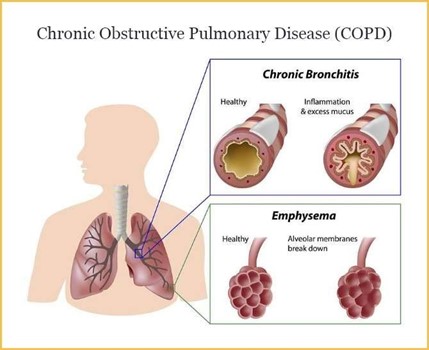A nurse is reinforcing teaching with a client about smoking cessation.
Which of the following client statements indicates an understanding of the teaching?
"I can continue to smoke while using nicotine patches."
"I should join a support group to help me be successful."
"Nicotine replacement therapy can cause cancer."
"Varenicline could make me addicted to nicotine."
The Correct Answer is B
b. "I should join a support group to help me be successful."
The statement that indicates an understanding of smoking cessation teaching is option b: "I should join a support group to help me be successful." Joining a support group is a beneficial strategy for quitting smoking as it provides social support, encouragement, and shared experiences with others who are also trying to quit.
Option a is incorrect because using nicotine patches does not allow for continued smoking as it delivers nicotine without the harmful effects of smoking.
Option c is incorrect because nicotine replacement therapy (NRT) is a safe and effective method to manage nicotine withdrawal and does not cause cancer.
Option d is incorrect because varenicline is a medication that helps reduce nicotine cravings and withdrawal symptoms, and it does not make a person addicted to nicotine.
Nursing Test Bank
Naxlex Comprehensive Predictor Exams
Related Questions
Correct Answer is ["B"]
Explanation
Answer: B
Rationale:
A) Use written signs to assist the client with locating the bathroom: While written signs may be helpful in the earlier stages of Alzheimer's disease, as the disease progresses, clients may lose the ability to read and comprehend written language. Visual cues, such as pictures or color-coded indicators, tend to be more effective in helping clients navigate their environment.
B) Limit the number of choices for the client: Limiting choices reduces confusion and anxiety for clients with Alzheimer's disease. Providing too many options can overwhelm them, making decision-making difficult. Offering simple, clear choices helps to maintain a sense of autonomy while minimizing stress.
C) Provide a stimulating environment for the client: Although some stimulation can be beneficial, excessive stimulation can overwhelm a client with Alzheimer's disease, leading to agitation and confusion. It's important to create a calm, structured environment that promotes safety and reduces anxiety.
D) Use confrontation to manage the client’s behavior: Confrontation should be avoided when managing the behavior of clients with Alzheimer's disease. Confronting or challenging them can increase agitation and lead to further confusion. Instead, caregivers should use distraction, redirection, and a calm approach to manage difficult behaviors effectively.
Correct Answer is B
Explanation
The nurse should atend to the client who has COPD and dementia and was agitated during the night shift first. This client may be experiencing respiratory distress or other complications related to their COPD and requires immediate assessment and intervention.
a) A client who has heart failure and is incontinent of urine requires atention, but their needs are not as urgent as those of the client with COPD and agitation.
c) A client who had a hip arthroplasty 10 days ago and reports pain with ambulation requires atention, but their needs are not as urgent as those of the client with COPD and agitation.
d) A client who had a cerebrovascular accident 6 months ago and reports constipation requires attention, but their needs are not as urgent as those of the client with COPD and agitation.

Whether you are a student looking to ace your exams or a practicing nurse seeking to enhance your expertise , our nursing education contents will empower you with the confidence and competence to make a difference in the lives of patients and become a respected leader in the healthcare field.
Visit Naxlex, invest in your future and unlock endless possibilities with our unparalleled nursing education contents today
Report Wrong Answer on the Current Question
Do you disagree with the answer? If yes, what is your expected answer? Explain.
Kindly be descriptive with the issue you are facing.
